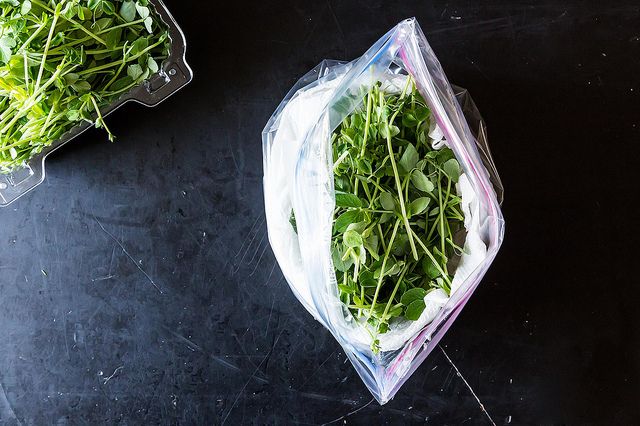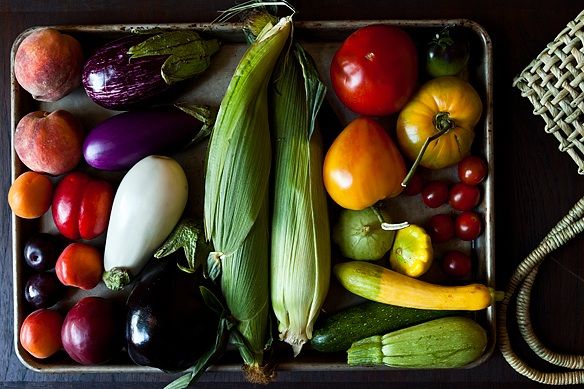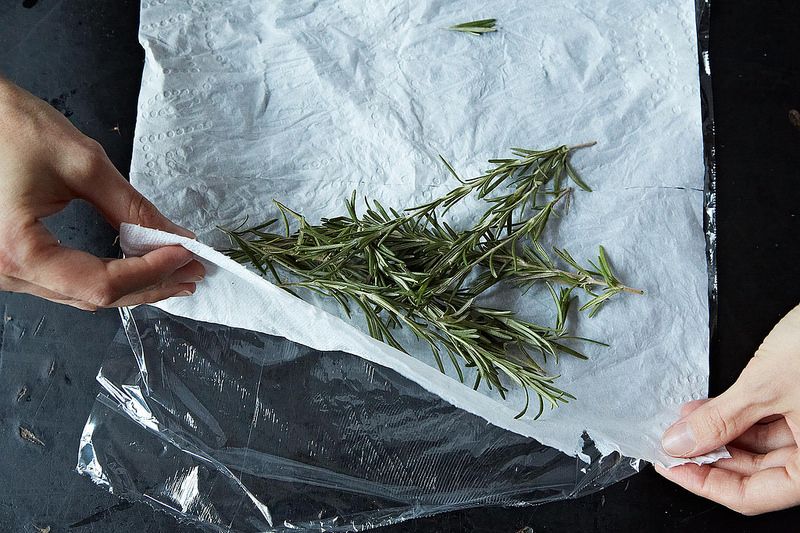
It's here: Our game-changing guide to everyone's favorite room in the house. Your Do-Anything Kitchen gathers the smartest ideas and savviest tricks—from our community, test kitchen, and cooks we love—to help transform your space into its best self.
Grab your copyPopular on Food52
8 Comments
susan H.
August 24, 2015
To add to the life of fresh asparagus, I wash and dry them and stand them upright in a wide-mouth glass filled with a few inches of water. They can survive several days outside the fridge, and longer in a cooler climate.
Mariuccia
August 16, 2015
I wash my fruits and vegetables with vinegar and water and then dry completely and store with a paper towel in a bag or the container they came in. Sometimes, I sprinkle with baking soda, then pour vinegar and rinse with water. I don't have a problem with mold at all, I think the vinegar prevents mold.
Ellen A.
May 4, 2015
I+eat+a+lot+of+vegetables+and+a+lot+of+salad.I've+been+able+to+make+my+red+lettuce,+herbs+and+spring+mix+last+by+wrapping+them+in+microfiber+cloths,+which+absorb+a+crazy+amount+of+water+and+are+washable+and+reusable.+Then+I+store+them+in+Debbie+Meyer+Green+Bags.+I've+been+doing+this+for+years.+Even+'shrooms+last+much+longer.+Dill,+parsley,+even+cilantro+-+all+last+longer+wrapped+in+microfiber.+Debbie+Meyer+Green+Bags+are+washable+and+reusable+as+well.++
Traci E.
May 4, 2015
I took two road trips last year and I packed a lot of veggies and fruits in mason jars. I was amazed at how long everything lasted, even sliced cucumbers stayed crispy and not slimy for more than 5 days!!! Now I store berries and any cut veggies in mason jars or other glass containers.
MaryAlice
May 4, 2015
Instead of plastic bags I wrap my produce in paper towels and put it in the plastic containers in which salad greens are sold. See-through, stackable. Seemed to me that if they are used for shipping and selling, they should be good for keeping things fresh. Vegetables hold a long time. I try to keep an updated list of what produce is in the refrigerator on the door.
bbmoe
May 2, 2015
My big "aha!" moment was frustration with large containers of strawberries going bad quickly. Now I wash and hull them immediately on getting home, and I get them at Costco, where stock turnover is high and they are displayed in a chilled room. The washing and hulling is key, though- even Costco strawberries go fast without that.
Mei C.
May 2, 2015
Interesting! I was taught to store strawberries in a single layer, laid out on paper towels, in the refrigerator, and to not wash them until right before use.
bbmoe
May 2, 2015
I think laying them in a single layer must help, but seriously- I buy 2 lbs at a time and I don't have the acreage! I do towel them down before I put them in a clean container. Even though the strawberries are washed before they are packed, the hulls do retain some sand and dirt, as I see from the bottom of the bowl I wash them in. This soil contains all kinds of bacteria and spores that will happily grow on the strawberry flesh.




See what other Food52 readers are saying.